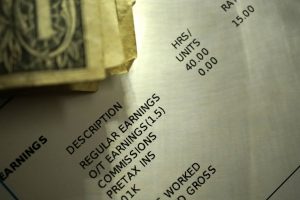Many people wonder whether a mortgage loan should be considered a debt or perhaps an investment. After all, you're not spending that loan money on daily expenses or buying fun stuff for yourself. You're investing it in a real estate asset which carried its own value. Things aren't so simple though, and in this post, we break down just how you should look at a mortgage - including where it should go on your balance sheet.

When answering the question “is a mortgage considered debt?”, it's important to first define the meaning of debt. Debt is defined by Merriam-Webster dictionary as
A state of being under obligation to pay or repay someone or something in return for something received: a state of owing.”
By this definition, you would assume that a mortgage would fall into this category. After all, your mortgage is in its most simple form, the debt you owe a company, bank or individual after borrowing money from them to purchase your home.
Good Debt vs Bad Debt, What’s the Difference?
However, there is a distinct difference between what is considered good debt and bad debt or consumer debt. So, although the answer to the question "Is mortgage debt?" must be yes, it isn’t that straight forward. This is because your mortgage is considered good debt. Let's take a look at the difference between good and bad debt.
Good Debt
Ideally, you would live a life free of all debt. Of course, this isn’t possible for most of us, aside from the ultra-wealthy and even they need to borrow from time-to-time. It’s important to keep in mind, though, that not all debt is bad. For example, a mortgage, the topic in question, is considered a good debt by many. This is because it is considered an investment that will increase in value. This is another way of saying it’s an asset (more on this later), something that you could eventually liquidate and get your money back on.
This is, of course, assuming you aren’t borrowing more than your home’s worth. It also is a debt that you can use to lower your taxes, by deducting the tax on your annual payments. Ideally, your home would become an asset after you have kept it for enough time, allowing its value increase. In so doing, you will cancel out any interest you paid in overtime. This ability to cancel out the interest paid in is why some will say a mortgage isn’t a debt at all.
Bad Debt
Conversely, bad debt, more commonly known as consumer debt, is the type of debt you want to avoid. There are two primary forms of consumer debt, that being a fixed payment or loan, think car loans, and credit card debt. There are many Americans who currently find themselves in this type of debt. In fact, as of May 2019, the amount of consumer debt held by Americans rose 5% to an astounding $4.09 trillion.
That’s a lot of money.
This amount of debt is crippling to the nation and can cause all sorts of financial problems for the families these numbers represent. Thankfully, your mortgage is not considered a bad debt or consumer debt.
Is a Mortgage a Debt or an Asset?
We have already determined that your mortgage is in fact a debt, but is in a select category of debt considered financially beneficial. However, you still might be wondering if that makes it an asset. Well, yes and no. How’s that for clarification? In all seriousness, yes, your home is an asset because it is something that you own that has value or will increase in value.
However, if you owe on your home, via a mortgage, this presents a bit of a gray area. If you owe more than your home is worth, as mentioned above, your mortgage debt is no longer an asset but a liability. On the other hand, if you owe very little in relation to your home’s value, your mortgage can be an asset. Therefore, the answer to the question is: a mortgage is many times both an asset and debt.
Is a Mortgage an Expense?
The interest payment portion of your mortgage is considered an expense. However, the portion of the payment that goes towards your loan’s principal balance usually not. In general, when you make your loan payment on the last day of the month, your mortgage interest is considered an expense. Let’s break it down a bit more:
Let’s assume your mortgage is $500.00. Of that $500.00, you have the following:
- Loan payment: $387.51
- Interest expense: $112.49
The expense portion is the interest. (Of course, in terms of the simple definition of an expense being something you pay or deduct from your income, then yes, your mortgage payment is a regular expense.)
Where Does a Mortgage go on a Balance Sheet?
Let’s stay with the above example. When you consider these numbers, only the $112.49 would be recorded on your balance sheet as an expense. Speaking of balance sheets, you will usually report your mortgage as mortgage loan payable on a balance sheet. This will contain the principal amount owed.
The interest that has accrued since your most recent payment will be reported or labeled as either current liability or as interest payable. You do not calculate or record the future interest of your loan on your balance sheet. Let’s break it down a bit more with a different example:
Your mortgage amount is $280,000.
- The monthly payment is $4,500.
- Each month there is $3,000 going to the principal payment, with the remaining $1,500 going towards the interest of the loan.
- Over the next year, you would repay some $36,000. You get this number by multiplying $3,000 by 12.
- You would report the $36,000 as your current liability (loan amount minus the principal payment for the year) or ($280,000-$36,000).
- The remaining loan balance of $202,000 is labeled on your balance sheet as a long-term liability, meaning it won’t be due before a year’s time.
If you aren’t sure how to determine what portion of your loan is the principal and what is the interest accrued, you can request an amortization schedule from your lender.
What Type of Expense is a Mortgage?
Your mortgage is considered a fixed expense. This means it does not change from month-to-month, period-to-period. Although the amount might vary slightly based on mitigating factors like insurance costs or taxes going up (assuming you have them all lumped into one payment), in general, this type of expense is fixed and reliable month after month. It is something you have to plan to pay on a regular basis.
What You Need to Know About Making Your Mortgage Working For You
To ensure your mortgage remains a good debt, an asset or even an investment, you have to first keep in mind the debt to income ratio when setting up your loan. Most banks, credit unions and other financial institutions require you keep your debt under 43% of your income. This means, totaled up, all the debts you pay monthly will not be more than 43% of your income. If they are, not only will you likely struggle to make ends meet, but you probably won’t qualify for the loan in the first place. Of course, there are other factors to consider when talking mortgages, like down payments and collateral.
However, in general, don’t buy more house than you can afford, and you are ensuring you don’t end up having a mortgage that evolves from what was once an asset to a bad debt or liability.
This is never ideal. If you make sure you have plenty of wiggle room between what you borrow against your home and its actual worth or what you could sale it for, you will be in good shape and your mortgage will actually benefit you, instead of weighing you down.



